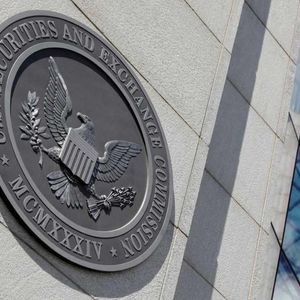As the new year begins, Ripple’s Chief Legal Officer, Stuart Alderoty, urges the U.S. Securities and Exchange Commission (SEC) to adopt clearer, more focused crypto-related regulations. In a recent X post , Alderoty laid out six principles that he believes should guide the SEC’s crypto regulation. His message urged the agency to focus solely on regulating securities, not trying to control all asset transactions or digital tokens. This comes as the Ripple-SEC legal saga continues to unfold. Alderoty Urges SEC To Keep It Focused on Securities, Not Sales Alderoty clarified that the SEC’s jurisdiction should remain strictly within the realm of securities. He used a simple analogy to illustrate his point. He stated that selling a gold bar with rights to a gold mine is a security transaction. However, selling a gold bar without attached rights or obligations is not. Let’s hope these principles won’t need repeating in 2025 and beyond: 1.The SEC only has jurisdiction over security transactions. 2.Selling a gold bar with a contractual right, title, or interest in my gold mine? Likely a security transaction. 3.Selling that same gold bar without… — Stuart Alderoty (@s_alderoty) December 31, 2024 This distinction is critical because it sets boundaries for what the SEC should regulate. According to Alderoty, transactions not involving post-sale obligations fall outside the SEC’s remit. This perspective comes as Ripple battles the SEC over these very issues. Ripple’s CLO Push for Clarity and Collaboration Alderoty also rejected the idea that a crypto token could change from security to something else over time. This notion, he argued, only creates confusion and legal uncertainty. In his view, tokens can be used in securities transactions but are not securities unless specific conditions are met. Alderoty called for greater collaboration between the SEC and Congress to establish clear, transparent regulations for the crypto industry. This approach would benefit the industry and help prevent overreach by regulators. This will also ensure that everyone understands what is allowed in the sector. A cooperative approach will lead to a more stable and fair regulatory environment for crypto. Despite its legal battle with the SEC, Ripple has consistently pushed for rules that give the industry certainty. Looking Forward: Hope for Clarity in 2025 Another key point Alderoty addressed was the SEC’s tendency to expand its authority, often based on subjective criteria. He argued that the SEC should focus on its core mission of addressing fraud in the crypto space. Rather than trying to control every aspect of digital asset transactions. By staying focused on its primary goal, protecting investors from fraud, the SEC could help the industry grow responsibly. With the ongoing lawsuit between Ripple and the SEC, Alderoty’s message is more relevant than ever. He hoped these principles would guide the SEC’s actions in 2025 and beyond. This would help create a fairer, more transparent regulatory environment for the crypto industry. The post Ripple CLO Unveils Six Key Guidelines for US SEC to Note appeared first on TheCoinrise.com .


















